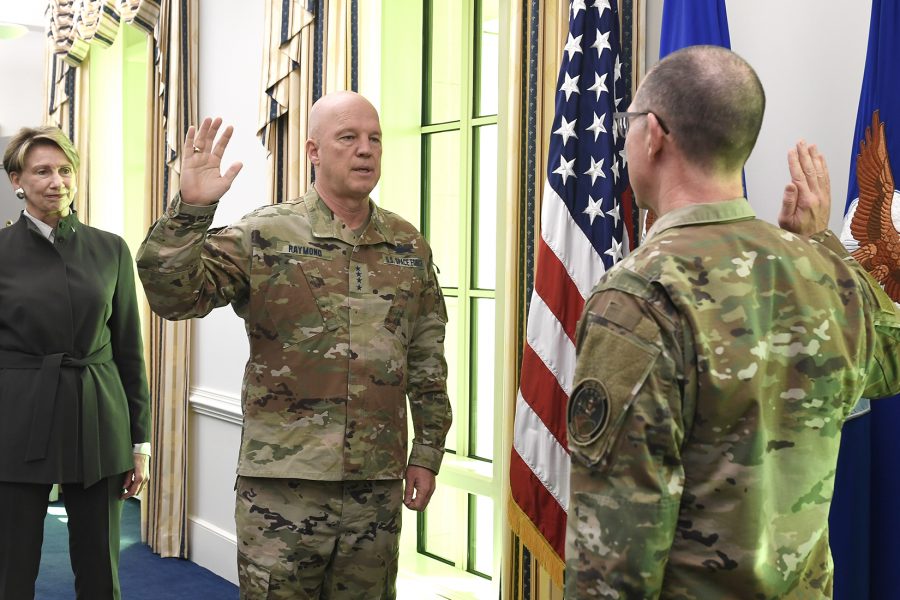Want to be one of the first military members to volunteer to join the Space Force? Your 30-day window of opportunity starts May 1.
“I know 30 days isn’t a long time, which is why we’re trying to get out in front of it,” Chief Master Sgt. Roger Towberman, the Space Force’s top enlisted officer, said during an April 16 virtual town hall. “I understand it’s a life-changing decision, a life-impacting decision for you and your family, so we want you to get it right.”
Applications are open to anyone in the Defense Department, not just Air Force personnel who already control satellites and manage rocket launches. Those who sign up are locked in for two years beginning in September, though Towberman said they could make exceptions for people who might have problems with the two-year commitment.
“You have to get approval of your service and the approval of the Space Force, but those options are open to you,” Chief of Space Operations Gen. Jay Raymond said during the town hall. “We have multiple, many, many O-5 [lieutenant colonel] leadership opportunities in the Space Force. … What we can’t do is break the Army, or break the Navy, or break the Marines while we stand up the Space Force, but if you’re interested, we’d love to have you.”
That appears to be a shift from the earlier plan to start transferring Air Force personnel into the Space Force in 2020 but wait on moving Army and Navy employees until fiscal 2022. The Space Force did not answer on April 20 whether Soldiers, Sailors, and Marines can join within the next two years.
Anyone who believes they will have a hard time submitting their intent to formally transfer into the Space Force by the end of May can email Towberman about their situation.
“I want to know the details,” he said. “We don’t want anybody caught and wondering and not being able to make a decision.”
The initial window for volunteers is tight, but the 30-day cutoff means military leaders will have a better idea sooner of how many people to account for in short-term planning. DOD expects the Space Force will include about 16,000 members, most of whom are already assigned to the new service as employees of the former Air Force Space Command.
“Every one of the services knows their end strength, they know how many people they have,” Towberman said. “We don’t have those answers until we get through this window and we get people to raise their hand and say ‘I’m in’ or ‘I’m out.’ We can’t plan accessions, we can’t plan recruiting strategies, we can’t plan retention levers, we can’t plan affiliations, we can’t do any of the normal planning that any service needs to do if we don’t know how many people are in.”
The Space Force will be staffed by a combination of members who are officially part of the new service and Air Force personnel who are assigned to the Space Force for jobs like installation security, but whose resources still come from USAF. Civilian employees will remain part of the Department of the Air Force but can be assigned to the Space Force, just as Department of the Navy civilians can work for the Marine Corps.
Eligible civilians who want to join the Space Force as officers or enlisted members could start that process late this summer to come in during fiscal 2021.
Space Force officials are soliciting ideas about how to make that patchwork of a workforce feel like a cohesive organization. The Air Force will value people who spend time with the Space Force in the same way that it regards other joint assignments, Towberman said.
Raymond and Towberman pledged that the service will develop the same sort of career advancement opportunities that are already available in the Air Force. Towberman said a new legislative affairs program will bring enlisted space operators to Capitol Hill next year.
There’s no news yet on what those enlisted operators will be called, however. The Space Force is still figuring out what to name its members instead of Airman, and that decision will change enlisted ranks like Airman 1st class.
Towberman said they are getting close on certain cultural considerations like the titles, but that he’s hesitant to celebrate those milestones while the service tackles priorities and larger concerns related to the coronavirus pandemic.
